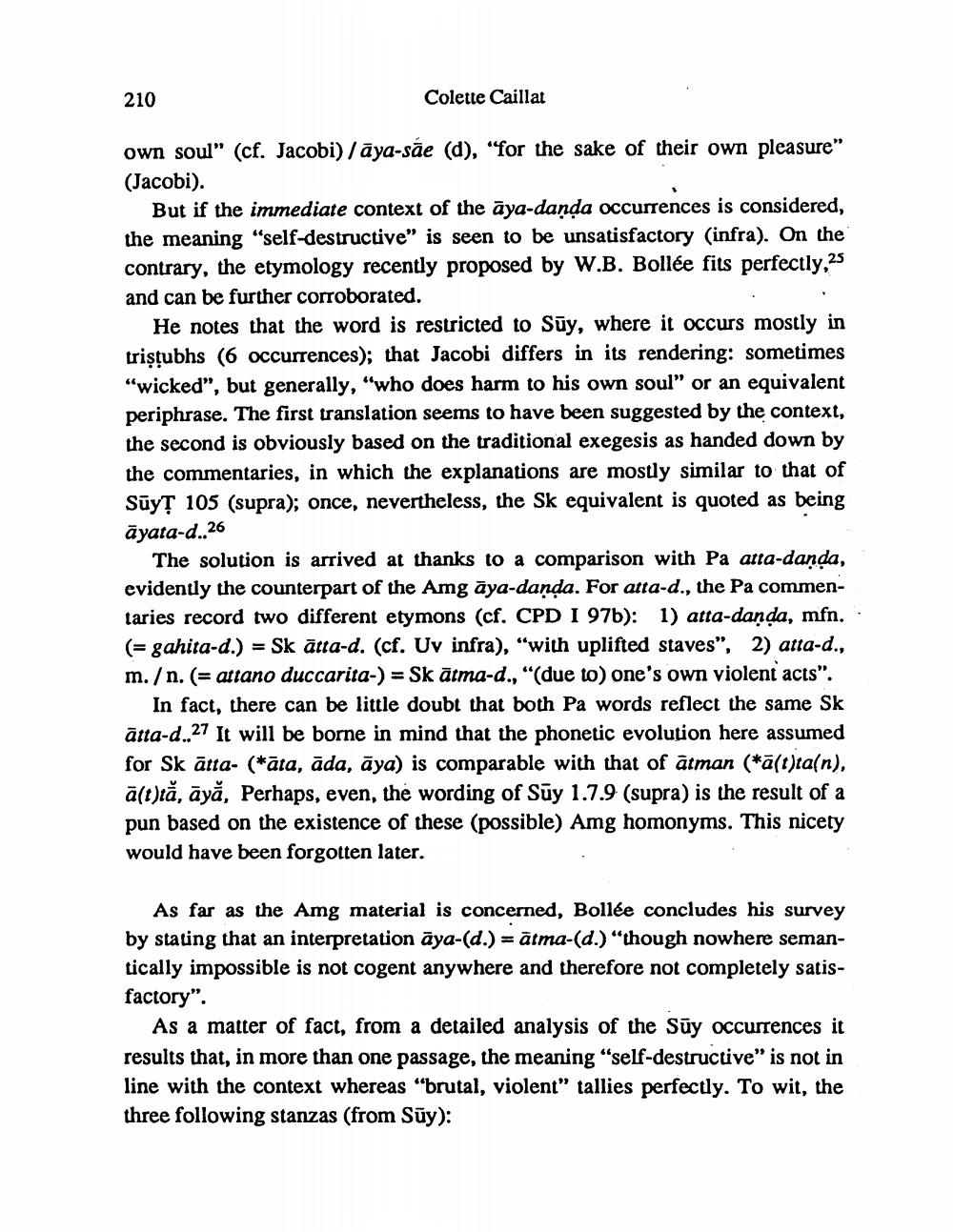________________
210
Colette Caillat
own soul" (cf. Jacobi) / āya-săe (d), "for the sake of their own pleasure” (Jacobi).
But if the immediate context of the āya-danda occurrences is considered, the meaning "self-destructive" is seen to be unsatisfactory (infra). On the contrary, the etymology recently proposed by W.B. Bollée fits perfectly,25 and can be further corroborated.
He notes that the word is restricted to Sūy, where it occurs mostly in tristubhs (6 occurrences); that Jacobi differs in its rendering: sometimes “wicked”, but generally, “who does harm to his own soul" or an equivalent periphrase. The first translation seems to have been suggested by the context, the second is obviously based on the traditional exegesis as handed down by the commentaries, in which the explanations are mostly similar to that of Sūy? 105 (supra); once, nevertheless, the Sk equivalent is quoted as being āyata-d..26
The solution is arrived at thanks to a comparison with Pa atta-danda, evidently the counterpart of the Amg āya-danda. For atta-d., the Pa commentaries record two different etymons (cf. CPD I 976): 1) atta-daņda, mfn. (= gahita-d.) = Sk ātta-d. (cf. Uv infra), “with uplifted staves", 2) atta-d., m./n. (= attano duccarita-) = Sk ātma-d., "(due to) one's own violent acts".
In fact, there can be little doubt that both Pa words reflect the same Sk ātta-d. 27 It will be borne in mind that the phonetic evolution here assumed for Sk ātta- (*āta, āda, āya) is comparable with that of atman (*ā(t)ta(n), ā(t)tă, āyă, Perhaps, even, the wording of Suy 1.7.9 (supra) is the result of a pun based on the existence of these (possible) Amg homonyms. This nicety would have been forgotten later.
As far as the Amg material is concerned, Bollée concludes his survey by stating that an interpretation āya-(d.) = ātma-(d.) “though nowhere semantically impossible is not cogent anywhere and therefore not completely satisfactory".
As a matter of fact, from a detailed analysis of the Sūy occurrences it results that, in more than one passage, the meaning "self-destructive" is not in line with the context whereas "brutal, violent" tallies perfectly. To wit, the three following stanzas (from Sūy):




